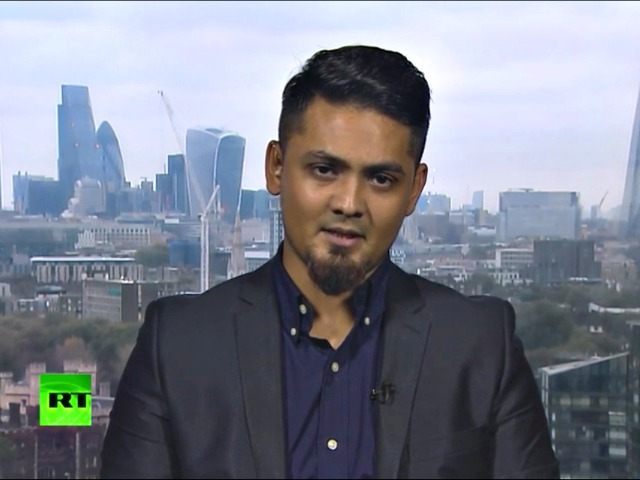At the weekend I had the pleasure of debating on TV with the BBC’s new pet Islamist, Dilly Hussain.
Dilly was saying — to a chorus of approval from his fellow panelists (bar me) — that he found nothing to be proud of in British history. Despite having been born here — the son of Bangladeshi immigrants – he could see only bad things in Britain’s historical record: such as the Bengali famine, which he blamed on Winston Churchill, and the breakup of the Ottoman Empire, in which he claimed to take more “pride and honour” than he did in the British one.
Perhaps I is racist or Islamophobic, innit, but I must confess that at no point during Dilly’s contributions did I get the impression of a luminous intelligence pronouncing from a position of deep knowledge and authority.
Let me apologise profusely if I turn out to be wrong and young Dilly is in fact a recent double first History graduate from Cambridge. But getting Dilly Hussain to come on BBC TV to talk about British history, it struck me as I listened, was about as illuminating and helpful as inviting Ali G to lecture us about quantum physics.
To give you a taste, here he is blogging at Huff Po on the British empire:
However, it is well known that most, if not all, of this imperial glory was achieved by the use of systematic genocide, political treachery and the forceful imposition of colonial ‘British values’.
Don’t you just love that lightly understated “if not all?”
His historical knowledge — and I’m not the only one to have noticed this — appears to begin and end with incidents which show his home country (that’ll be Britain — regrettably, as far as he seems to be concerned) in a bad light and the Muslim world in a flattering one.
As Yasmin Baruchi has suggested at the Harry’s Place blog, he appears to be blissfully unaware that the racist, Islamophobic bastard who allocated £100,000 for the erection of a mosque in London’s Regent Park was one Winston Churchill; and that the Ottoman Empire was hardly a model of moderation and decorum. (As one commentator pithily puts it: “Not even the Ottomans liked the Ottoman empire, you twatster”).
He’s no better on more recent history. He thinks the widely-documented Trojan Horse plot to impose an Islamist agenda on British schools was a myth; he thinks ISIS has nothing to do with Muslims; and I’m guessing he thinks something rather crass and relativistic about the brutal murderers of Lee Rigby, but I’m afraid I can’t be sure because his leaden, stilted prose is so opaque as to be almost incomprehensible.
But as difficult as it may be, there must be a genuine attempt in creating a nuanced approach to understand what leads individuals like Adebolajo and Emwazi to resort to such extreme measures. This does not mean that domestic anti-terror policies, foreign policy grievances, ‘jihadist’ ideology, and socioeconomic factors should be exclusively blamed, or over amplified in isolation. All these factors have to be taken into consideration holistically when trying to protect lives.
See what I mean?
Now I’m all for the BBC canvassing as wide a range of viewpoints as it possibly can on programmes like this (yes, even evil climate change deniers!) but it does worry me — as a licence fee payer, a keen upholder of the nation’s moral standards, and a tireless campaigner against prejudice in all its forms — that the BBC may inadvertently be guilty of racism by having invited Dilly onto the show. No worse, of full on Islamophobia.
Certainly if I were a typical, law-abiding, well-integrated British member of the religion of peace, I think I might find myself being mildly troubled that this Dilly fellow had been invited on by the BBC to represent my faith. “An incredibly thick and ill-informed extremist,” I’d be thinking. “That’s just what we British Muslims need to improve our tarnished image.”

COMMENTS
Please let us know if you're having issues with commenting.